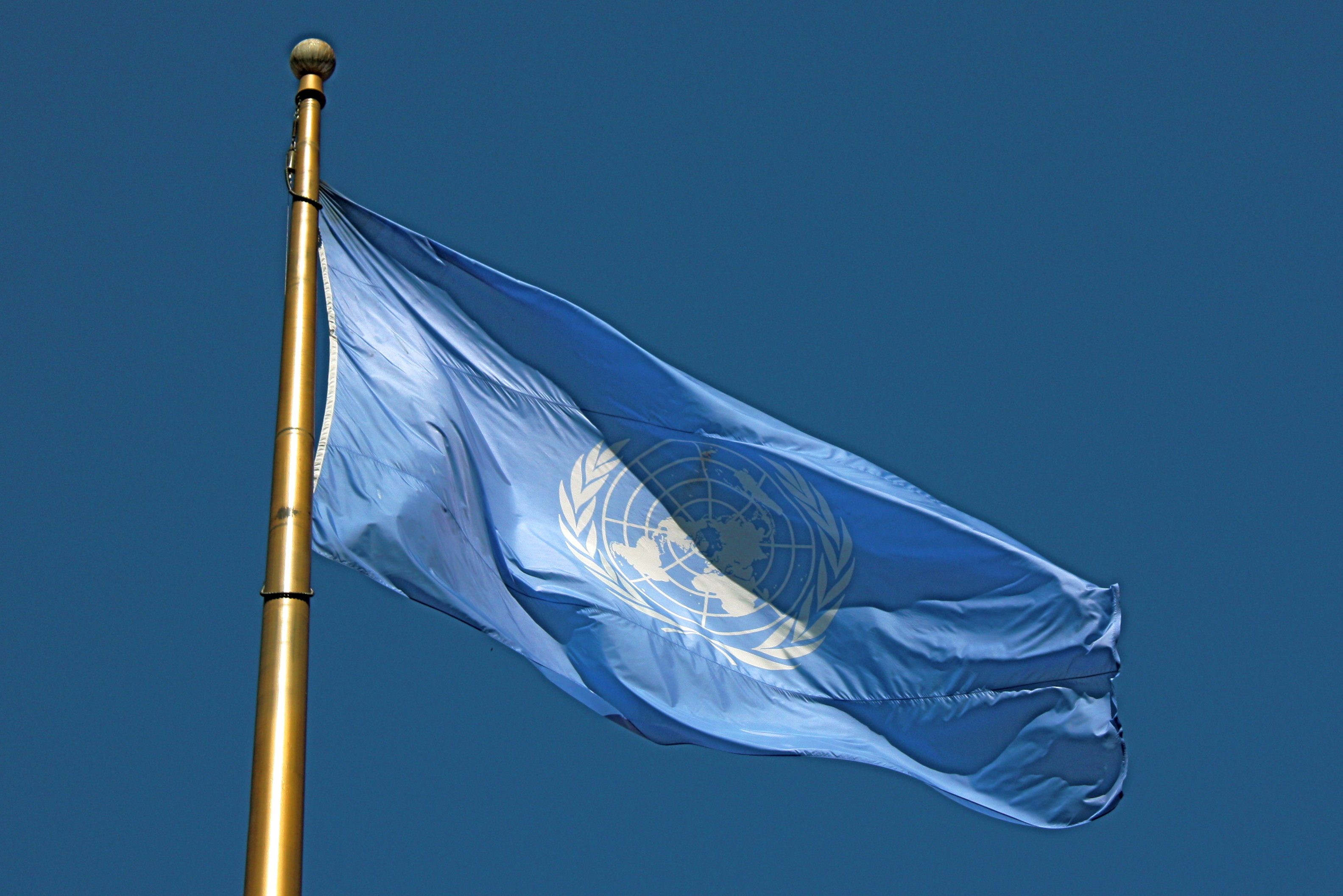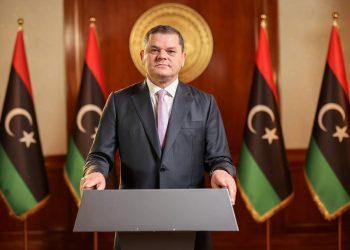In her briefing to the Security Council yesterday on the situation in Libya, UN Under-Secretary-General Rosemary DiCarlo warned that the Libya crisis could lead to instability and parallel governments in the country.
Here is her statement in full:
Mr. President,
Thank you for the opportunity to brief the Security Council on the situation in Libya.
Since my last briefing to the Council on 24 January, there have been several substantial developments in the country.
The Libyan executive is facing a crisis that could, if left unresolved, lead to instability and parallel governments in the country. The United Nations is exerting significant efforts to resolve this crisis. We aim to bring together Libyan stakeholders to agree on a constitutional basis for the holding of elections as soon as possible.
On the economic front, there has been some progress in advancing the reunification of the Central Bank.
On the security track, the focus is currently on protecting the work of the 5+5 Joint Military Commission from the negative impact of the political crisis and facilitating progress towards the withdrawal of mercenaries and foreign fighters.
Regrettably, the human rights and humanitarian situations continue to be sources of concern.
Mr. President,
Allow me to expand on the points outlined above.
Following the postponement of national elections, originally set for December 2021, the House of Representatives and the High State Council focused on appointing a new interim government. They also agreed to chart a process to amend the 2017 Constitutional Proposal and to a path towards elections.
On 10 February, the House of Representatives adopted the 12th Constitutional Amendment reportedly after achieving consensus with the High State Council (HSC).
The process set out in the Constitutional Amendment calls for the appointment by 24 February by the HoR and HSC of a constitutional review Committee, representing the three regions of Libya. The review Committee never materialized.
On 10 February, the House of Representatives, with the endorsement of 52 HSC members, also designated Mr. Fathi Bashagha, a former Minister of Interior, to form a new government, which would be presented to the House of Representatives for a vote of confidence.
The United Nations took note of both the vote on the 12th Constitutional Amendment and the designation of a Prime Minister. We advised the House of Representatives that the vote of confidence on the proposed new government should be transparent and consistent with Libyan laws and regulations.
However, on 24 February, the High State Council rejected the formation of a new government and the 12th constitutional amendment.
On 1 March, the House of Representatives held a vote of confidence on the new government. The UN received reports that the vote was marred by procedural flaws and threats of violence against some members of the chamber and their families. These shortcomings impacted the credibility of the process.
The Secretary-General, in a statement on 2 March, expressed concern that the vote fell short of standards of transparency and procedure.
On 3 March, members of Mr. Bashaga’s cabinet were nevertheless sworn in by the House of Representatives.
Since the 1 March vote, the situation on the ground has remained relatively calm. However, we have observed increasingly threatening rhetoric, growing political tensions and divided loyalties among the armed groups in western Libya. The Government of National Unity leadership has rejected the legitimacy of the vote, stating that they will only transfer power to an elected government. Mr. Bashagha, meanwhile, insists he is heading the legitimate government.
Mr. President,
Our priority is to focus on fulfilling the aspirations of the more than 2.8 million Libyans who have registered to vote. They should be able to choose their leaders through credible, transparent, and inclusive elections according to an agreed upon constitutional and legal framework.
The Special Adviser of the Secretary-General, Ms. Stephanie Williams, has continued her consultations with a broad cross section of Libyan political and security actors and civil society.
The UN is focusing its efforts on building a consensus among Libyan institutions to hold elections as soon as possible.
Joint committee of members of the House of Representatives and the High State Council
We aim to convene a joint committee of members of the House of Representatives and the High State Council with the objective of achieving agreement by both bodies on a constitutional basis that would lead to elections this year.
On 3 March, Special Adviser Williams invited the Speaker of the House of Representatives and the President of the High State Council to appoint six members each to form this joint committee. The leaders of the HOR and the HSC responded favourably to the initiative.
Yesterday, the HSC nominated its representatives to the joint committee. We expect the HoR to do the same in the coming days to avoid further delays in this process.
I am encouraged by the support the UN initiative is receiving from Libyans but also from the Presidency Council. International partners have also welcomed the initiative.
Separately, Special Adviser Williams has offered her good offices to mediate between Mr. Dbeibah and Mr. Bashagha to overcome the current political impasse.
Mr. President,
As long as the standoff over executive legitimacy continues, Libya could again see two parallel administrations. This could lead to instability and possibly unrest and deal a severe blow to the prospect of elections.
There have been worrying developments since the vote of confidence that took place in the HoR on 1 March. Local flights between Tripoli and cities in eastern Libya remain suspended, while forces in western Libya supporting either side moved on 9 and 10 March towards the capital. Special Adviser Williams engaged both sides and managed to reduce tensions.
The United Nations continues to urge both parties to engage in a constructive dialogue to resolve the political impasse and to refrain from unilateral actions that could result in further divisions.
Mr. President,
On the security track, the 5+5 Joint Military Commission (JMC) continues to take steps to implement its Action Plan for the withdrawal of foreign fighters, foreign forces and mercenaries from Libya.
The UNSMIL Ceasefire Monitoring Component continues to work closely with the 5+5 JMC to establish an operational hub in Sirte.
Mr. President,
Libya’s economic sector continues to suffer from a lack of oversight and clarity on public spending. Since there was no approved national budget in 2021, the Central Bank of Libya issued payments for public sector salaries and subsidies according to the last approved budget.
These payments are being supplemented by extraordinary spending measures requested by the GNU from the Central Bank.
A controversy over budgetary payments inhibited the functioning of the National Oil Corporation. On 9 January, negotiations between the GNU and the Petroleum Facilities Guards (PFG) over non-payment of salaries averted a shutdown of oil production in parts of the country.
Despite these concerns, I am, nevertheless, pleased to report that the Governor and Deputy Governor of the Central Bank of Libya launched a programme to reunify the institution, based on the recommendations of the independent audit of the Bank in July 2021.
Mr. President,
The human rights situation in Libya remains deeply worrying. UNSMIL observed an increase in hate speech, defamation and threats, as well as incitement to violence and acts of violence against activists, journalists, and political actors, including women.
State and non-State actors continued to arbitrarily arrest and detain human rights activists. In eastern Libya, in particular, national security laws were often arbitrarily applied. Meanwhile, a lack of due process and fair trial standards marred proceedings in military courts.
Migrants and refugees at sea continue to be intercepted by Libyan authorities and transferred to formal and informal detention centres where they reportedly suffer serious human rights violations. Deaths in custody, torture, starvation and extortion also have been reported.
The United Nations reiterates its readiness to work with Libyan authorities to strengthen migration governance and border control in line with international law and in cooperation with international partners.
Mr. President,
Regarding the humanitarian situation, the United Nations recorded a further decrease in the number of internally displaced persons from 179,000 at the end of 2021 to 168,000 by 5 March.
However, forced evictions by local authorities are a growing concern. The need for durable solutions for physical, material and legal safety for internally displaced persons remains a top priority.
Mr. President,
Libya is now facing a new phase of political polarization, with risks dividing its institutions once again and reversing the gains achieved over the past two years.
We know from experience what unilateral actions, divided government, and an unending transition may hold in store for Libya. We remain convinced that credible, transparent and inclusive elections based on a sound constitutional and legal framework are the only solution to the current stalemate.
I urge members of the Security Council to convey this message to Libyan parties, to call for responsible leadership by Libyan institutions, and to remain united in support of UN efforts to assist Libya in its path to becoming a peaceful and stable country.
Thank you, Mr. President.










